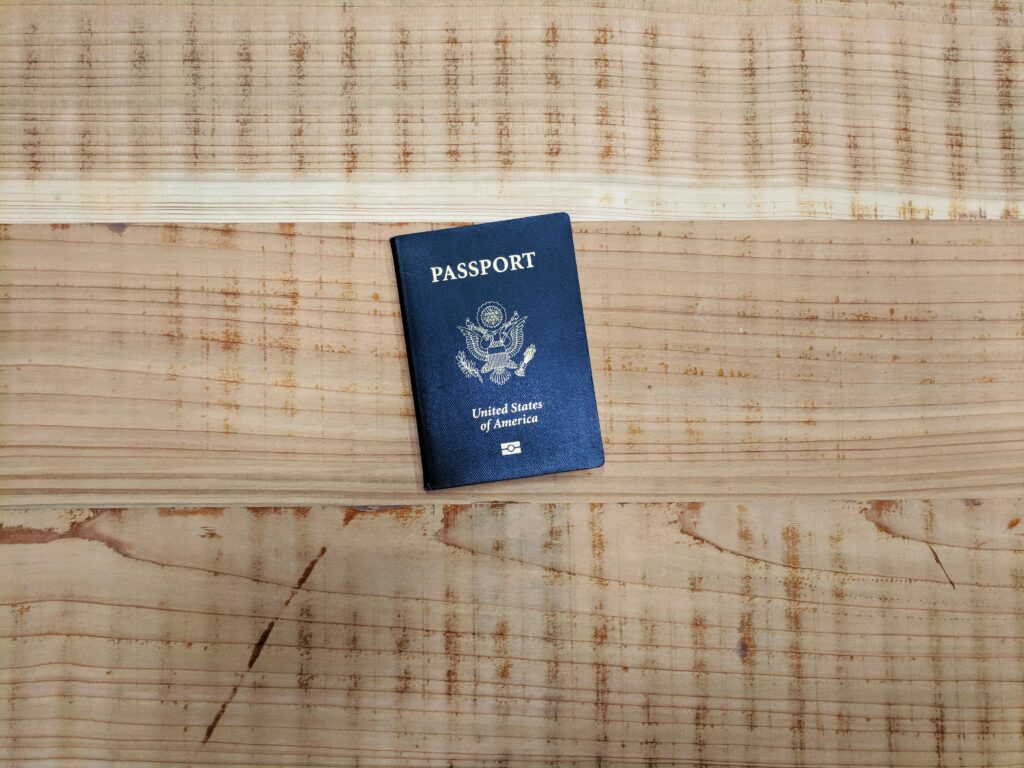Are you a non-resident LLC owner looking to kick-start your business in the land of opportunity? Navigating the intricate web of US immigration laws can be a daunting task, but fear not! In this comprehensive guide, we’ll unravel the complexities and shed light on the legal requirements and obligations for non-resident LLC owners. By the end of this blog, you’ll be armed with the knowledge needed to confidently pursue your entrepreneurial dreams in the United States. Let’s dive in!
Contents
Understanding Non-Resident LLC Ownership
Exploring the possibility of owning an LLC as a non-resident in the United States can be an exciting and complex venture. This section aims to clarify the basics of non-resident LLC ownership and the related U.S. immigration laws.
Basics of Non-Resident LLC Ownership
Non-US citizens, including non-resident LLC owners, can own an LLC in the United States (Doola). This means individuals worldwide can operate a business entity within the U.S., even without a U.S. social security number or residency (wise.com).
In essence, non-resident LLC owners can open a U.S. business bank account, hire employees, and enter into contracts within the U.S. This provides a significant opportunity for non-residents to establish a business presence within the U.S. market. For detailed information on the process, refer to our step-by-step guide to forming an LLC as a non-resident.
Immigration Laws for Non-Resident LLC Owners
While non-resident LLC owners can own and operate a business in the United States, they are subject to U.S. immigration laws when conducting business in the country.
One important consideration is that non-resident LLC owners are not eligible for certain work visas typically available to noncitizen entrepreneurs in the U.S. (USCIS). Therefore, owning and managing an LLC may face restrictions when physically working in the U.S.
Non-resident LLC owners must know these nuances and fully comply with U.S. immigration laws. To understand and navigate these complexities, it may be beneficial to seek professional advice or consultation. Our articles on legal obligations and compliance for non-resident LLCs and insurance and risk management for non-resident LLCs provide further insight on these topics.
As you delve into non-resident LLC ownership, remember that while the process can be complicated, it is not impossible. With careful planning, understanding of the laws, and appropriate guidance, setting up and owning an LLC in the U.S. as a non-resident can be rewarding.
Tax Implications for Non-Resident LLC Owners
Understanding the tax implications of operating an LLC in the U.S. as a non-resident is crucial for business success. This section will cover the different tax treatments for LLCs based on their classification, obtaining an Employer Identification Number (EIN), and reporting and paying taxes as a non-resident LLC owner.
Tax Treatment for Different LLC Classifications
The tax treatment for non-resident LLC owners largely depends on whether the LLC is classified as a disregarded entity or a corporation (Doola).
If the LLC is classified as a disregarded entity, the non-resident LLC owner will report income and pay taxes on their tax return. This means that the LLC’s profits and losses pass through to the owner’s tax return, and the owner pays taxes on these amounts at their tax rate.
| LLC Classification | Tax Treatment |
|---|---|
| Disregarded Entity | Profits and losses are reported on a separate corporate tax return, taxes paid at the corporate tax rate. |
| Corporation | Profits and losses reported on a separate corporate tax return, taxes paid at the corporate tax rate. |
On the other hand, if the LLC is classified as a corporation, the non-resident LLC owner may need to file a separate U.S. corporate tax return. In this case, the LLC’s profits and losses are reported on the corporate tax return, and taxes are paid at the corporate tax rate.
How to Obtain an Employer Identification Number
An Employer Identification Number (EIN) is a unique nine-digit number the Internal Revenue Service (IRS) assigns to businesses in the United States. It’s used to identify a business entity and track its financial transactions. Non-resident LLC owners must obtain an EIN for their business, even if they don’t have employees.
Obtaining an EIN involves filling out an application form and submitting it to the IRS. Non-residents can apply for an EIN online, by mail, or by fax. Once the application is processed, the IRS will issue an EIN for the LLC.
Reporting and Paying Taxes as a Non-Resident LLC Owner
Non-resident LLC owners must report their business income and pay taxes to the IRS. The specific tax reporting requirements and payment procedures depend on the LLC’s classification and the nature of its activities.
Nonresident owners typically report their income and deductions on Schedule C of their tax return for LLCs classified as disregarded entities. This includes income from U.S. sources and any deductible expenses related to the business.
For LLCs classified as corporations, the LLC must file a separate corporate tax return (Form 1120) and pay taxes on its profits at the corporate tax rate.
Depending on where the LLC conducts business, non-resident LLC owners may also be required to file state and local tax returns. You should consult with a tax advisor to understand your LLC’s specific tax obligations.
Understanding the tax implications is crucial to operating an LLC as a non-resident in the U.S. For a comprehensive guide on setting up an LLC as a non-resident, refer to our step-by-step guide to forming an LLC as a non-resident.
Setting Up an LLC as a Non-Resident
Establishing an LLC as a non-resident in the United States comes with a unique set of steps and requirements due to U.S. immigration laws. Here, we delve into the incorporation process, the role of a registered agent, and the process of opening a US business bank account.
Incorporation Process for Non-Residents
The first step in setting up an LLC as a non-resident is choosing the state where you wish to incorporate your business. It’s important to research and consider the best state for non-resident LLC formation based on your specific needs.
After choosing the state, you must file the necessary paperwork, which typically includes the Articles of Organization. These documents outline the basic information about your LLC, such as its name, the nature of its business, and the names of its members.
Non-resident LLC owners must comply with U.S. immigration laws and may need to obtain appropriate visas or permits to visit or conduct business in the United States. For a step-by-step guide, please visit our article on LLC formation for non-residents.
Appointing a Registered Agent
In the United States, non-resident LLC owners must appoint and maintain a registered agent in the state where the LLC is formed (FindLaw). A registered agent is a person or a business entity that agrees to receive legal papers on behalf of your LLC if it is sued.
The registered agent must have a physical address in the state where your LLC is registered. This agent can be an individual resident of the state or a business entity authorized to do business there. Check out our recommendations for the best registered agents in Wyoming, Delaware, and Florida.
Opening a US Business Bank Account
Non-resident LLC owners can open a US business bank account, which is crucial for managing their finances (wise.com). This account allows you to receive payments, pay bills, and keep your business transactions separate from your finances.
Most banks will require you to present your LLC’s Employer Identification Number (EIN), Articles of Organization, and an Operating Agreement. Additionally, some banks might require a personal visit to open the account, which, depending on your location, might necessitate a visa.
In conclusion, while setting up an LLC as a non-resident can be complex, with the right guidance and resources, it’s entirely possible. Consult with legal and financial professionals to ensure you meet all requirements and make the best business decisions. For more detailed information, please read our guide on how to open a non-resident LLC in the USA.
Visa requirements are a key part of U.S. immigration laws for a non-resident LLC owner. This section will explore the different types of visas available and the importance of seeking professional advice to navigate visa requirements.
Types of Visas for Non-Resident LLC Owners
Non-resident LLC owners are not eligible for certain work visas typically available to noncitizen entrepreneurs in the United States (USCIS). However, depending on their country of citizenship and the nature of their business, they may be eligible for other types of visas, such as investor visas or treaty trader visas (USCIS).
It’s crucial to remember that non-US citizens who own a US corporation or LLC are not allowed to work in the US without proper documentation. Working without a valid work visa can result in significant fines and possible deportation (Active Filings).
Seeking Professional Advice for Visa Requirements
Given the complexity of U.S. immigration laws, it’s highly recommended that non-resident LLC owners seek professional advice when navigating visa requirements. This can help ensure that all legal requirements are met and that the appropriate visa is obtained.
Non-resident LLC owners can visit the USCIS website for more information on visa options, requirements, access forms, and resources related to working in the United States.
In addition, hiring an immigration attorney or consulting with a legal advisor who is familiar with U.S. immigration laws can be highly beneficial. These professionals can guide the visa application process, advise on the best visa type for your specific situation, and assist with any potential issues or challenges.
Understanding and adhering to U.S. immigration laws is essential for a non-resident looking to own an LLC in the United States. By being aware of the different visa options and seeking professional advice when necessary, you can make informed decisions that align with your business goals and legal obligations. For more information on forming an LLC as a non-resident, refer to our step-by-step guide.
Additional Considerations for Non-Resident LLC Owners
Apart from understanding the basic requirements of setting up an LLC in the U.S. and the unique tax implications, non-resident LLC owners should also be aware of other considerations. These involve hiring employees in the U.S., identifying potential limitations they may encounter, and determining the importance of seeking legal and tax consultation.
Hiring Employees in the U.S.
Non-resident LLC owners can hire employees, open a US business bank account, and enter into contracts in the U.S.. This can be instrumental in the expansion of their business operations. However, while non-U.S. citizens who own a U.S. corporation or LLC can hire employees, they are not permitted to work in the U.S. without proper documentation. Working without a valid work visa can result in significant fines and possible deportation.
Potential Limitations for Non-Resident LLC Owners
Despite the possibility of establishing an LLC, non-resident owners may face certain limitations. For instance, they are generally not eligible for the same tax deductions and credits as U.S. residents (wise.com). Additionally, they do not qualify for certain work visas typically available to noncitizen entrepreneurs in the United States.
However, non-resident LLC owners may obtain other types of visas, such as investor visas or treaty trader visas, depending on their country of citizenship and the nature of their business.
Importance of Legal and Tax Consultation
Complying with U.S. immigration and tax laws can be complicated for non-resident LLC owners. It is highly recommended that they seek professional guidance to navigate these complexities and ensure adherence to regulations.
Non-resident LLC owners should consult with both an immigration attorney and a business attorney who is knowledgeable about U.S. immigration laws and business formation requirements. This will ensure they are well informed about the laws and processes governing non-resident LLC ownership and can make the right decisions for their business.
Moreover, non-resident LLC owners should be cautious of scams and only consult official, secure government websites like USCIS.gov for accurate and reliable information on U.S. immigration laws and processes (USCIS).
In conclusion, while non-residents have opportunities to establish LLCs in the U.S., it is crucial to understand all the legal and tax implications. The correct information and professional advice can help non-resident LLC owners navigate U.S. immigration laws effectively and establish successful businesses in the U.S. Additionally, exploring avenues such as law guest posting can provide valuable insights and connections within the legal community, aiding non-residents in staying abreast of pertinent legal developments and expanding their network for potential collaborations and partnerships.
Shahzad Ahmad Mirza is a web developer, entrepreneur, and trainer based in Lahore, Pakistan. He started his career in 2000 and founded his web development agency, Designs Valley, in 2012. Mirza also runs a YouTube channel, “Learn With Shahzad Ahmad Mirza,” where he shares his web programming and internet marketing expertise. He has trained over 50,000 students, many of whom have become successful digital marketers, programmers, and freelancers. He also created the GBOB (Guest Blog Posting Business) course, which teaches individuals how to make money online.





